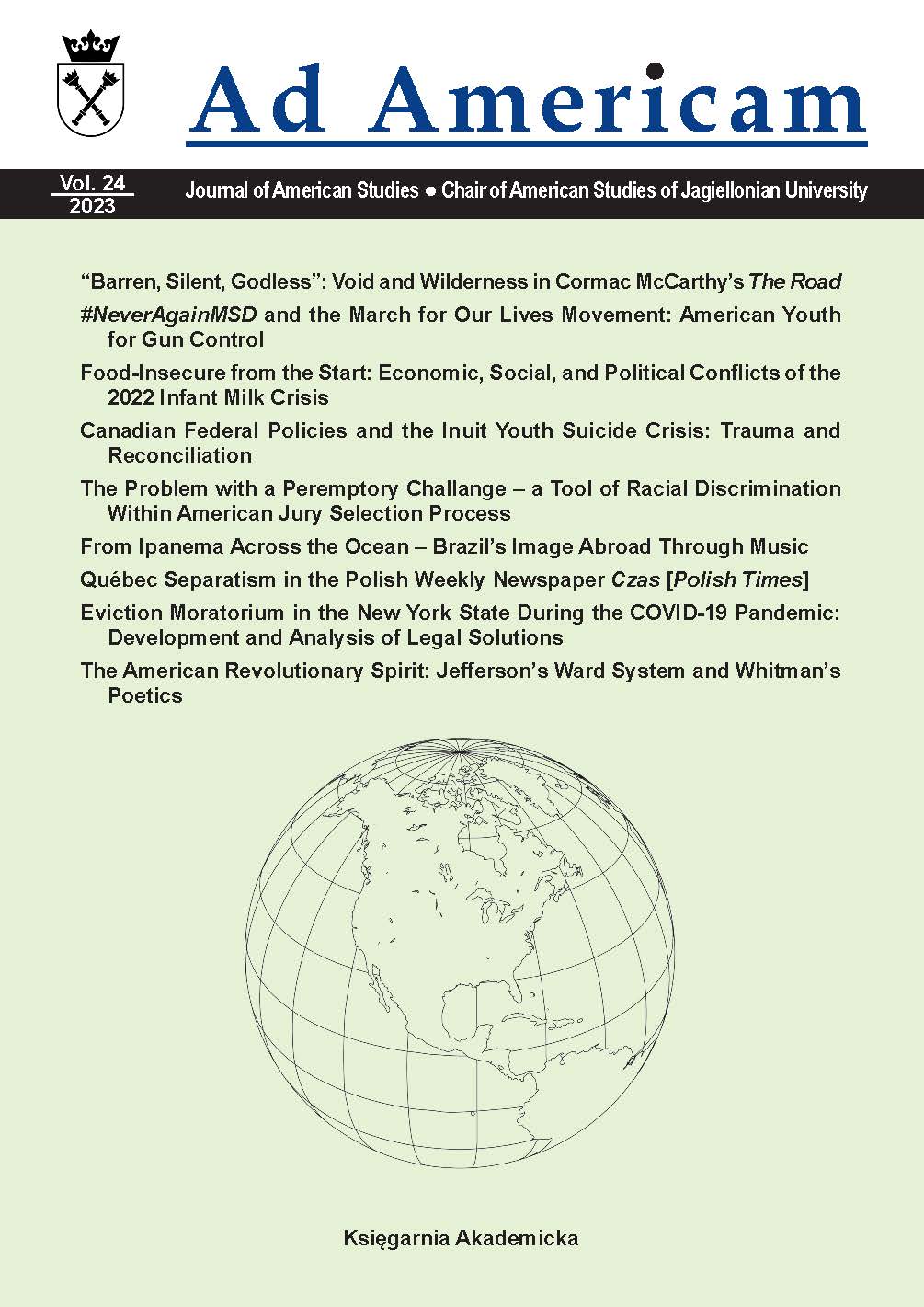“Barren, Silent, Godless”
Void and Wilderness in Cormac McCarthy’s The Road
“Barren, Silent, Godless”
Void and Wilderness in Cormac McCarthy’s The Road
Author(s): Gonçalo DiasSubject(s): Novel, Theory of Literature, American Literature, Sociology of Literature
Published by: KSIĘGARNIA AKADEMICKA Sp. z o.o.
Keywords: American studies; nature; wilderness; post-apocalyptic; silence;
Summary/Abstract: This paper proposes to explore how, through apocalyptic destruction, a characteristically American landscape in Cormac McCarthy’s The Road has undergone the process of remov- al of identity, and has, therefore, reverted into the hostile wilderness that marked Early American experience in its attribution of meaning to space. Considering Leo Marx’s “The idea of nature in America,” the journey delineated by both protagonists can be located as the heir to a Puritan tradition and/of American Nature. Yet, in the diegetic postapoc- alyptic landscape, human senses grow dim and biblical Words grow unspoken, as the po- tential for civilization turns into silence and a return to dust — and, most importantly, ash. If a characteristically American identity has been obliterated, how can meaning, if any, be found in the same material space it once held? Where can references to the past reside? Ultimately, if a dystopian destruction of both identity and the material plane has subvert- ed American utopian anxiety, in what ways has the possibility of considering American mobility through space in search for meaning turned void? McCarthy’s novel appears to provide no answer. However, as Toni Morrison stated — in “Unspeakable Things Unspoken,” — “a void may be empty, but is not a vacuum.”
Journal: Ad Americam. Journal of American Studies
- Issue Year: 2023
- Issue No: 24
- Page Range: 5-13
- Page Count: 9
- Language: English

